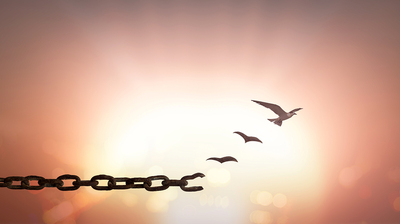
Is the inability to forgive holding you back from recovery and the promise of a better life?
Martin Luther King, Jr. famously said, “Darkness cannot drive out darkness; only light can do that. Hate cannot drive out hate; only love can do that.” While this inspiring sentiment applies to many aspects of life, it’s especially suitable for addiction and recovery—particularly when it comes to the concept of forgiveness. Here’s a closer look at why learning to forgive is a paramount part of the recovery process.
What is Forgiveness?
We’re all familiar with the concept of forgiveness. But what, exactly, does it mean? While forgiveness means different things from person to person, it typically “involves a decision to let go of resentment and thoughts of revenge,” explains the Mayo Clinic.
Forgiveness does not, however, mean forgetting. Nor does it mean overlooking harm done to you in the past or reconnecting with the people who may have wronged you. Continues the Mayo Clinic, “The act that hurt or offended you might always be with you, but forgiveness can lessen its grip on you and help free you from the control of the person who harmed you…Forgiveness brings a kind of peace that helps you go on with life.”
The Forgiveness Imperative
Recovery is a complex and multi-factored process. Integral to moving forward is letting go of past resentments and regrets. Sobriety won’t fix these things on its own; in fact, these emotions will continue to threaten your sobriety if left to fester. Enter forgiveness. Until addicts learn to forgive—both others who’ve harmed them as well as themselves—they can never truly leave the past behind in order to embrace a different future.
Proposes Psychology Today of the nature of forgiveness, “Most psychologists recommend mustering up genuine compassion for those who have wronged us and moving on from the past, instead of allowing bitterness and anger toward others to eat away at us.”
One caveat to the forgiveness imperative? In certain situations, such as when sexual abuse is involved, not forgiving can be both healing and empowering.
One of the best things about forgiveness is that it’s the gift that keeps on giving. The benefits of learning to forgive are profound, including healthier relationships, better mental health, reduced stress and anxiety, less hostility, fewer symptoms of depression, lower blood pressure, improved heart health, enhanced self-esteem, and even a fortified immune system.

The act of forgiving is as beneficial as the act of being forgiven.
Conversely, holding a grudge can lead to all sorts of consequences, ranging from bringing anger into new relationships and experiences to losing the ability to connect with others.
Tips for Learning to Forgive
Talking about forgiveness is one thing. Forgiving is another. But that’s not to say it’s impossible. In fact, forgiving others and yourself is entirely possible—so long as you choose to do so. The Mayo Clinic suggests that forgiveness is not a state of being, but rather a state of mind that can be nurtured through the following strategies:
- Recognize why forgiveness matters and how it can better your life and support your recovery
- Identify who you need to forgive, for what, and to what end
- Assess and acknowledge the wrongs you’ve done without judging yourself
- Talk about your feelings in a safe setting, such as with a therapist or support group
- Acknowledge your emotions and how they impact your behavior
- Try putting yourself in the other person’s shoes
- Make an active choice to forgive
- Release the control others may have on you by letting go of your identity as a victim
One last thing to keep in mind? Just like recovery is a process, so is forgiveness. And while you may be able to will yourself to forgive others, being forgiven in return is not within your control. Concludes the Mayo Clinic, “Whatever happens, commit to treating others with compassion, empathy, and respect.”
We’re Here to Help
To learn more about the role of forgiveness and recovery, along with how Harris House’s programs can help addicts through both processes, contact us today.







